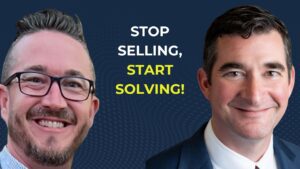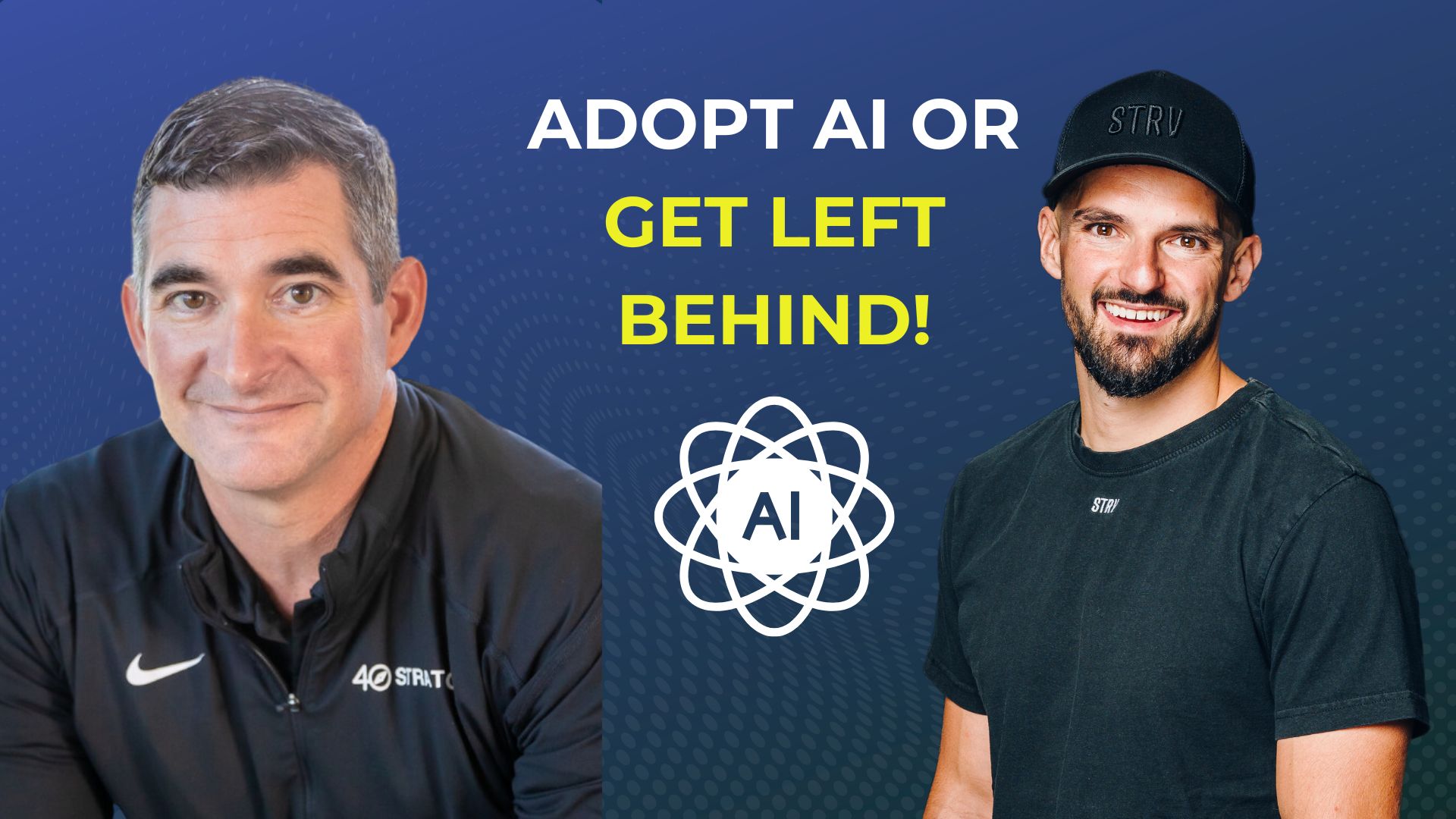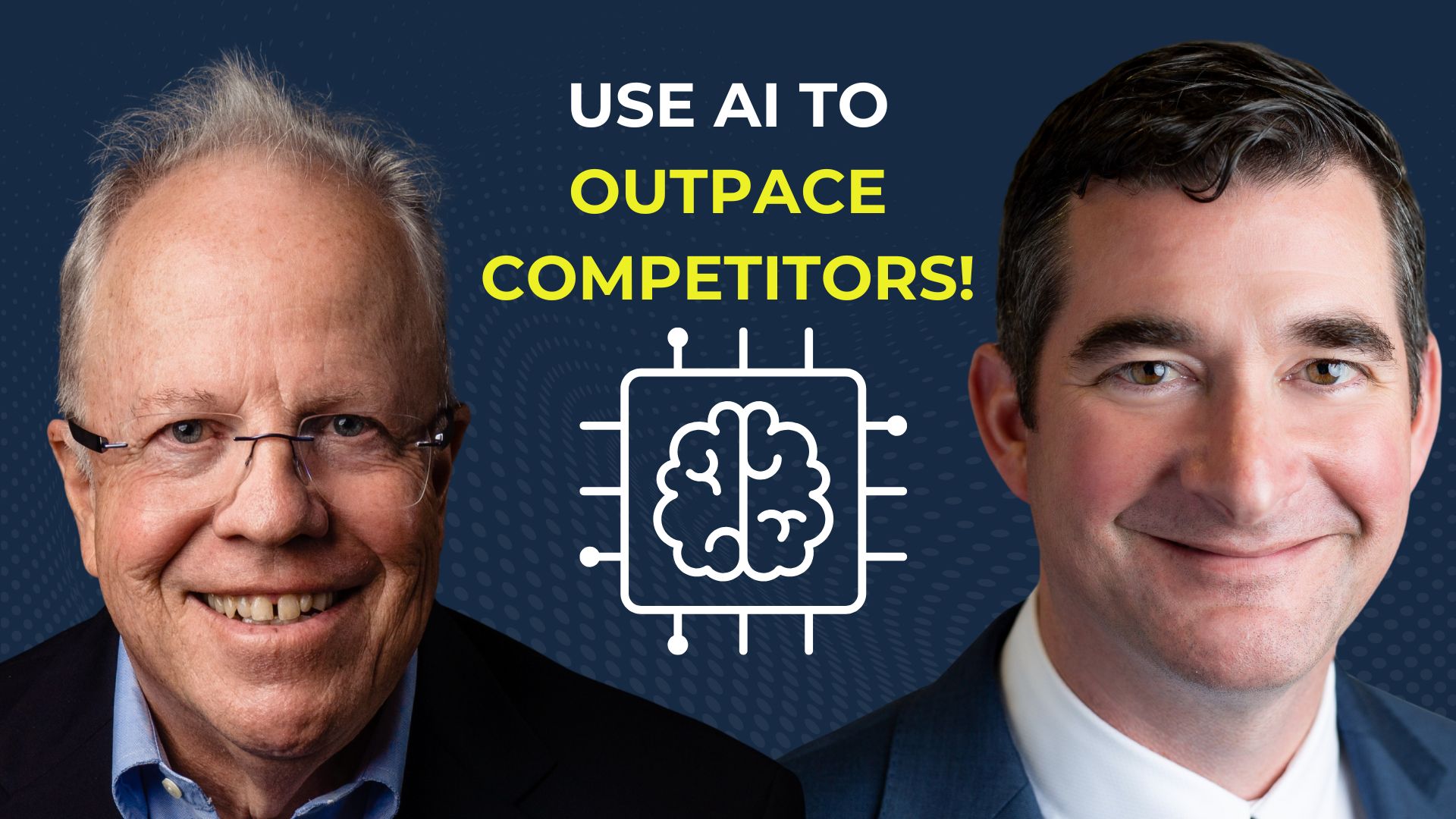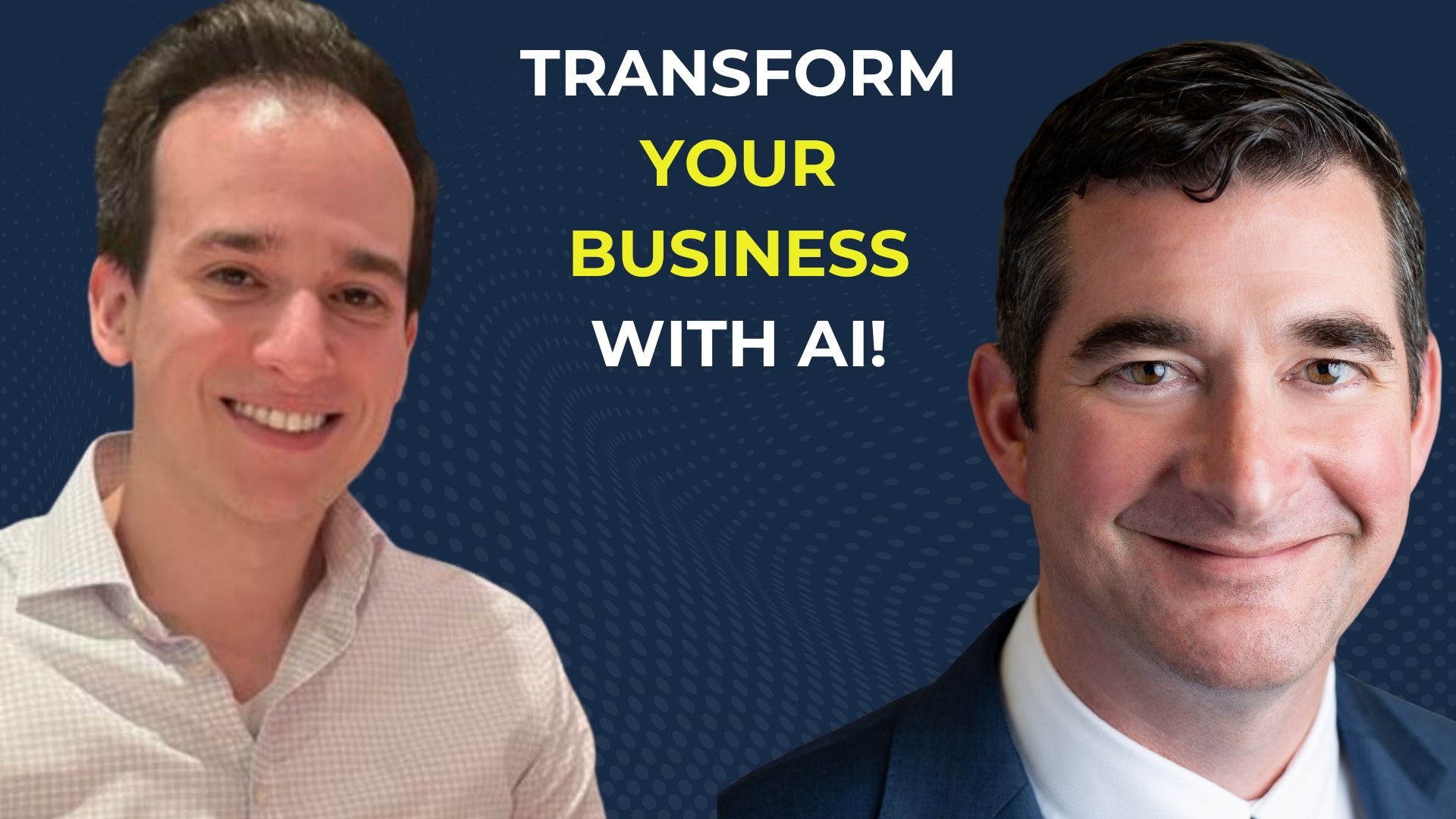Flip the Script: Build a Scalable Sales Process with Brian Bogert
Building a scalable sales process takes more than tools and tactics. While training, CRMs, and outreach are important, they don’t create long-term success without meaningful connection.
In this episode of the $4M Strategies™ podcast, Carl J. Cox, CEO of 40 Strategy and 40 Accounting, Brian Bogert shares how he learned to flip the sales script by focusing on alignment, trust, and client decision-making processes.
The Problem with Traditional Sales Approaches
Most salespeople rely heavily on traditional tools like CRM systems, outreach scripts, and follow-up techniques. While these can be effective, they often fail to address the deeper issues that prevent deals from closing. Brian explains that these approaches typically focus on surface-level interactions—the “what” and “how” of sales—but rarely dive into the “why.”
Brian shares a pivotal lesson from his early career in risk management and employee benefits consulting. He realized that many clients were conditioned by other salespeople to expect the same generic pitch, making it difficult to establish genuine connections. To stand out, he needed to reframe the entire process.
Introducing the Upfront Agreement
One of Brian’s key strategies is the upfront agreement. This technique involves setting clear expectations for client interactions right from the start. Instead of launching into a pitch or asking for information to create a quote, Brian focuses on understanding the client’s decision-making process, priorities, and pain points.
For example, when meeting with a new prospect, Brian starts by acknowledging the reality of the situation: “You’re meeting with me today because either your current advisor has failed to meet your needs, or you’re exploring options to improve your business. Let’s make this conversation meaningful by having an open dialogue about your goals and challenges.”
This approach not only builds trust but also positions the salesperson as a partner rather than a vendor. By emphasizing collaboration and mutual understanding, the upfront agreement creates a strong foundation for a lasting relationship.
Understanding the Client’s “Why”
A crucial part of Brian’s method is digging into the client’s “why.” Instead of focusing on product features or pricing, he asks questions like:
- What led you to this point?
- How do you make decisions about partnerships?
- What are your long-term goals for your organization?
These questions help uncover the deeper motivations behind a client’s needs, allowing salespeople to tailor their approach accordingly. As Brian points out, “The marketing of a product or service is the easy part. Understanding the client’s unique situation is what sets you apart.”
Shifting from Pitching to Problem-Solving
One of the most significant takeaways from this episode is the importance of shifting from a pitching mindset to a problem-solving approach. Brian emphasizes that clients don’t want to feel sold; they want to feel understood. By focusing on adding value upfront, salespeople can create an environment where clients feel comfortable sharing their true concerns and challenges.
Leveraging Alignment for Scalability
Scalability in sales isn’t just about closing more deals; it’s about creating repeatable processes that drive consistent results. Brian’s approach emphasizes alignment—both within the sales team and with clients. By standardizing techniques like upfront agreements and value-driven conversations, organizations can scale their efforts without losing the personal touch.
Key Takeaways from the Episode
If you’re looking to build a scalable sales process, here are the key takeaways from this episode:
- Focus on the Client’s Perspective: Understand their decision-making process, goals, and pain points before offering solutions.
- Use Upfront Agreements: Set clear expectations to build trust and create a collaborative environment.
- Shift from Selling to Solving: Add value by addressing the client’s unique challenges, not just pitching your product.
- Standardize for Scalability: Develop repeatable processes that maintain a personal touch while driving consistent results.
- Prioritize Connection: Build meaningful relationships that foster long-term success.
Final Thoughts
Building a scalable sales process requires more than tools and tactics. It demands a shift in mindset—from pushing products to solving problems. Brian Bogert’s approach provides a roadmap for creating a sales process that’s not only scalable but also deeply human.
Ready to transform your sales strategy? Tune in to this episode of the $4M Strategies™ podcast and discover how to flip the script for sustainable success.
Looking for help building your sales process? Let 40 Strategy help!
Listener Feedback:














